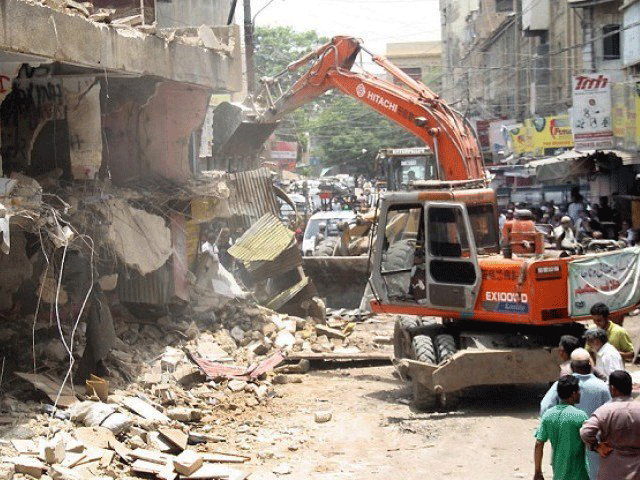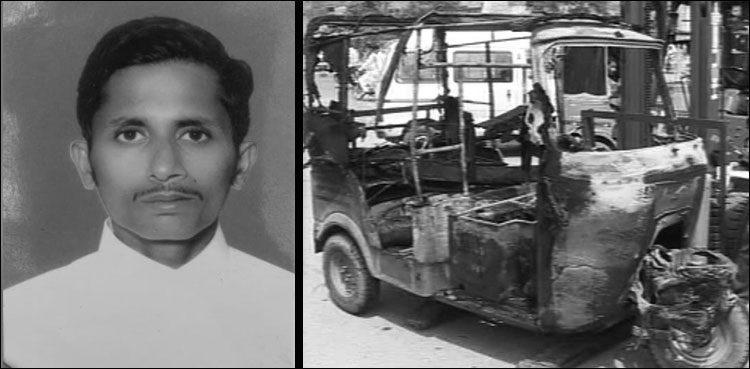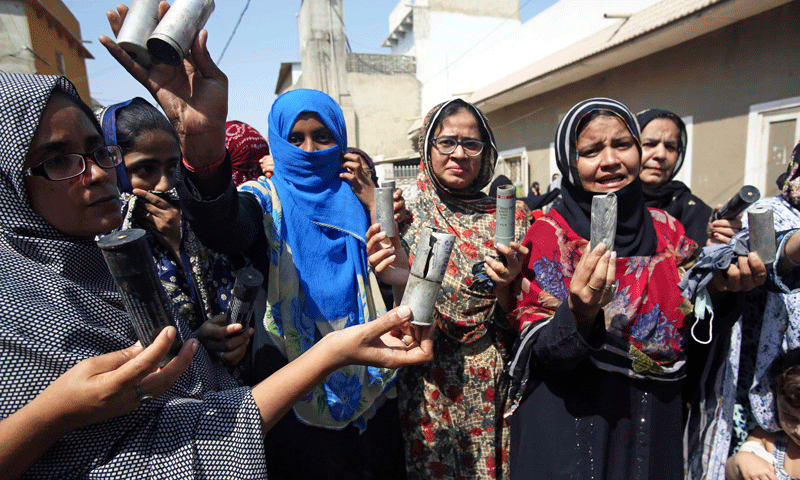Rights and Wrongs
By I. A. Rehman | Newsbeat National | Published 7 years ago

No room for mercy: Authorities demolish buildings around the country as part of the nation-wide anti-encroachment drive.
The Supreme Court Chief Justice’s recent proclamation regarding the court’s determination to ensure that all citizens can enjoy their basic human rights has revived hope in countless hearts that they may actually finally get their due.
The message, however, apparently did not reach Khalid, a rickshaw driver in Karachi, who had lost all hope of getting justice and chose self-immolation as the only way out of his misery. He perhaps thought the only right he had was the right to die. The saddest irony was that the poor man did not realise that although his society does not guarantee him a means of living, it has made suicide a penal offence. Anyhow, death saved him from prosecution for failing to kill himself. It also left undecided the question of whether wisdom lies in paying the police a daily bhatta according to the prescribed rate, or in paying a fine to the state.
Far away from Karachi, in the northern part of the country, meanwhile, Gulalai Ismail wondered whether her right to work for women’s emancipation and empowerment was going to be protected. The young Pakhtun woman made the mistake of securing international recognition for her courageous initiative in a difficult environment. A mistake, because anyone receiving recognition abroad becomes, in the brotherhood of the eyeless, a foreign agent. First she was hounded by a male tormentor who persuaded the authorities to bar her from doing her social work, and now she is facing the state’s wrath for exercising her right to freedom of expression.
Then there is Nausheen, a journalist for 16 years and a producer at one of the TV channels. She has been summarily sacked. The economic blow is unbearable, but she has been more hurt by what she describes as an attack on the dignity of her person. She could access the Supreme Court, but was denied entry to her workplace and permission to speak to her seniors. She is one of the many media persons who have been given termination letters, reportedly worded in a manner that suggests the acceptance of employees’ resignations while none have resigned. Do they have no rights?
A large number of women activists who are only guilty of fighting for their freedom from violence, fear, want and exploitation, like Gulalai Ismail, are facing all kinds of threats from authorities. Will their fundamental rights too be defended?

Driven to desperation: Shahid, a rickshaw driver, was compelled to commit self-immolation.
On the other hand, Tahira Jalib’s right to protest against an inflated electricity bill received a prompt and positive response. Congratulations to Tahira Jalib for proving to be luckier than her father. While Habib Jalib’s call for justice for the downtrodden was never heard by the small men in power, her protest pricked the conscience of the Lahore Electric Supply Company chief and he could not rest until he had suspended quite a few of his subordinates.
This fit of humanitarian fervour is in sharp contrast with the experience of countless consumers who are routinely told to first pay the inflated bill before their protest/appeal can be entertained. The electricity suppliers, along with revenue and tax collectors, contend that this is the law ¬– pay up first and ask for relief later. The movement for protection against overcharging and inflated billing is very weak. The common people have no access to consumer courts, and most of them are even unaware of such courts’ existence. Those who are unable to pay inflated bills have their, as it is, intermittent supply of electricity, cut off altogether.
If the bijliwallas are really convinced by Tahira Jalib’s plea against inflated billing, they should consider relaxing the rule for all consumers to the effect that their complaints will be probed without them being asked to pay up in entirety what they have been charged first, or without being subjected to the payment of 10 to 20 per cent of the bill before their complaint will even be heard.
A considerably large category of people who are pleading for respect for their basic rights comprises poor citizens who have been deprived of shelter and/or livelihood as a result of the so called anti-encroachment drive. While one is all for demolition of commercial structures built by land grabbers and mafias supported by politicians, bureaucrats and builders, and we would like to see the Gutter Baghicha land recovered from illegal occupants and the lands of villagers living in the suburbs of Karachi for decades restored to them, the displaced people have a brief that cannot be summarily dismissed.
In one of the anti-encroachment operations in Lahore, covered live by a TV channel, a hearing and speech impaired, and clearly poor, citizen was being pushed and dragged around, perhaps beaten up as well. He had been eking out a meagre subsistence by vending goods from his cart. There are hundreds of thousands of such chhabriwallas who have been doing business along roads and streets all over the country. They serve the economy and save the people from going to markets where everything is more expensive. A very large number of employees in the formal and informal sectors obtain low-priced midday meals and drinks from vendors occupying public space near their offices and workplaces. You cannot ignore the interests of these vendors and their clients so long as the wage levels are low.

Rendered homeless: Women from the Pakistan Quarters protest the local police firing tear gas shells to evict them from their homes.
Besides, while bulldozing unauthorised dwellings established on state owned or private property, a distinction must be made between professional land-grabbers and residents of many years of old katchi abadis. The latter have a strong case for regularisation of their humble dwellings. If it is absolutely essential in the public interest to retrieve land on which unauthorised structures have been constructed, the residents have a right to alternative land that offers them the advantages they have enjoyed at the locations they have been displaced from. Let us not forget that squatters too have rights.
In a country where unplanned growth exceeds the planned sector and the authorities have left the encroachers at the mercy of bhatta collectors in official robes or gangster outfits, even good-looking campaigns such as the anti-encroachment drive should not be launched without assessing its impact on the rights and interests of the citizens likely to be adversely affected by them. It does not matter if such rights and interests have been acquired over long periods of the state functionaries’ failure to do their duty. Allowing or overlooking an encroachment for years amounts to conferring on it a legitimate status. That is perhaps what the law of limitation is all about.
Mr. I.A. Rehman is a writer and activist living in Pakistan. He is the secretary general of the Human Rights Commission of Pakistan Secretariat.


